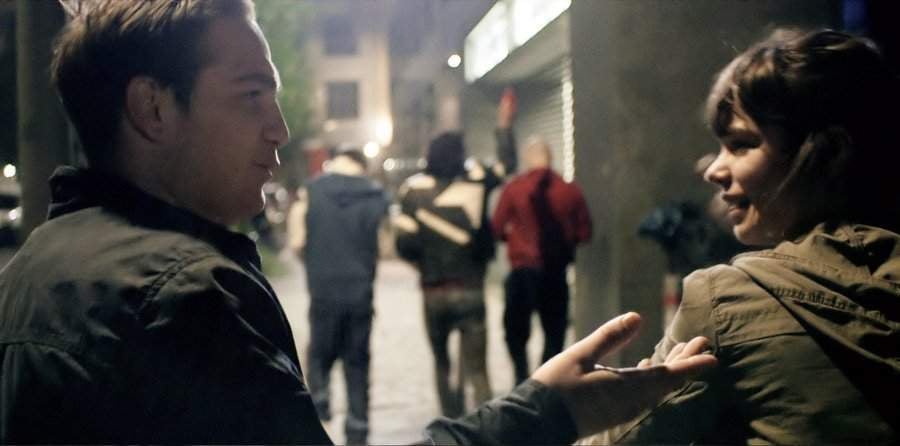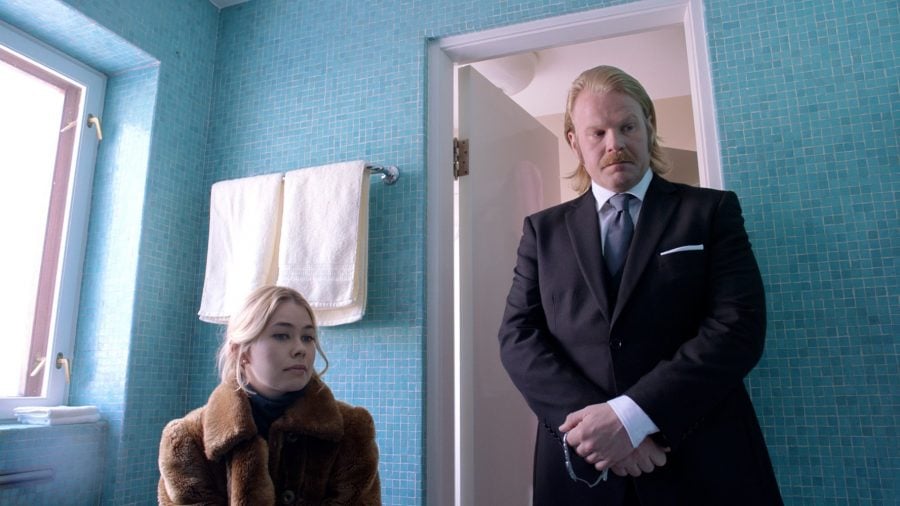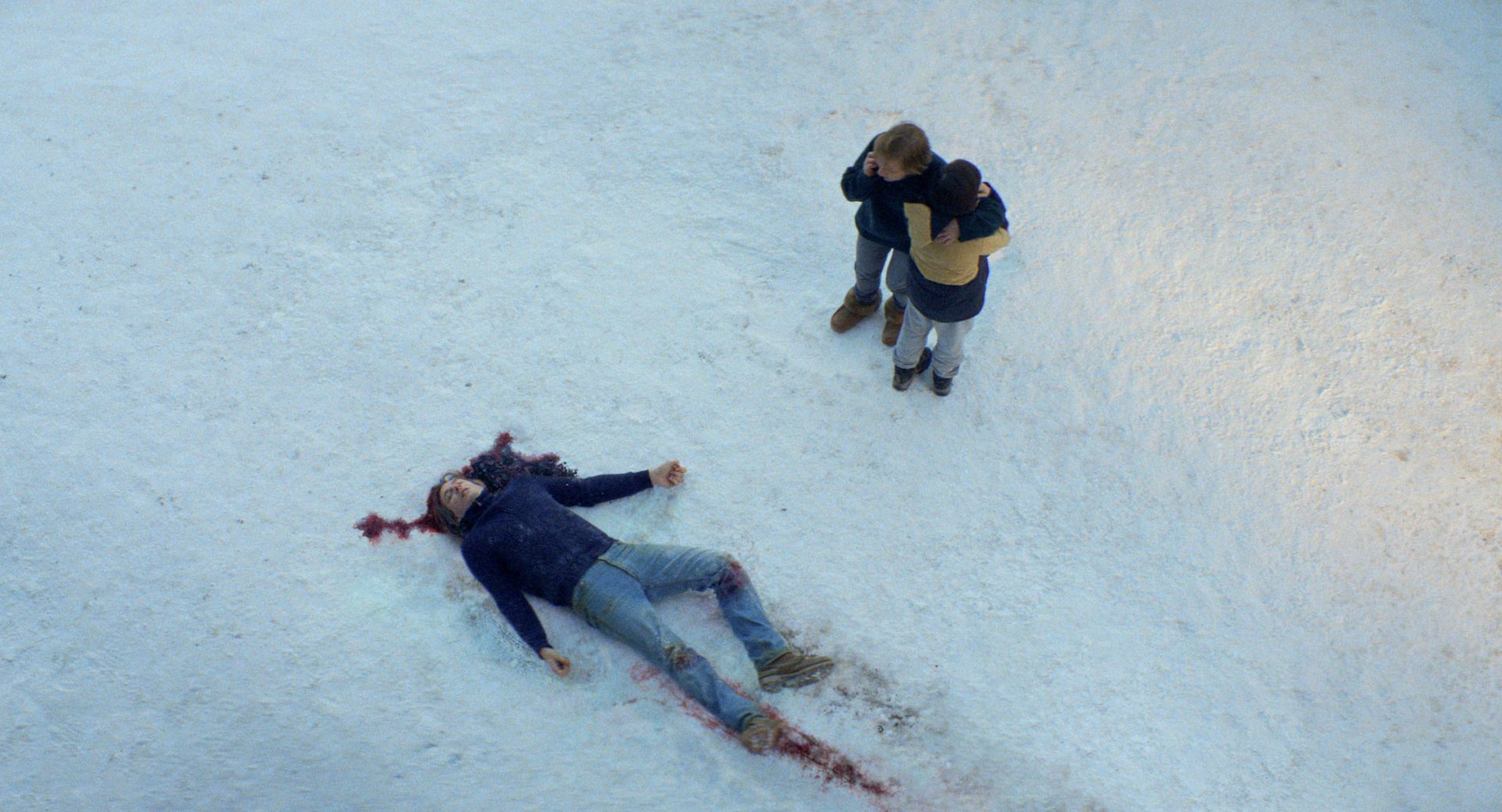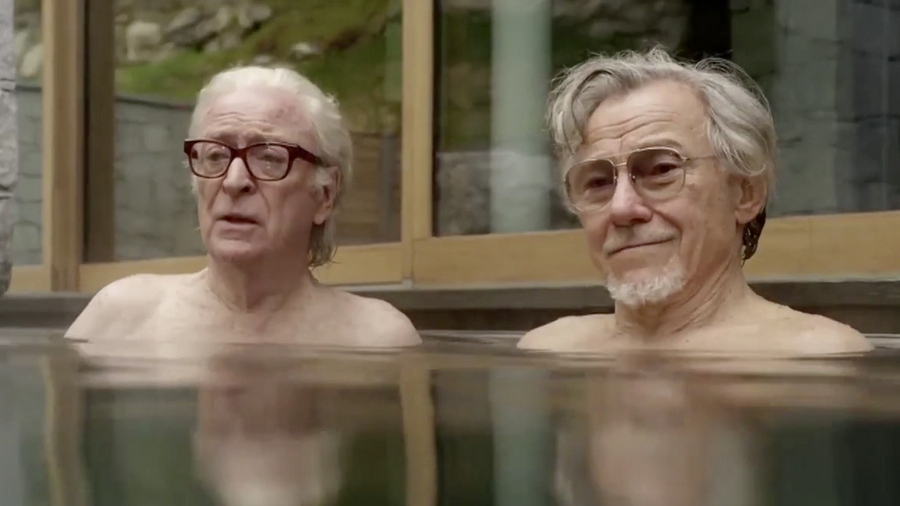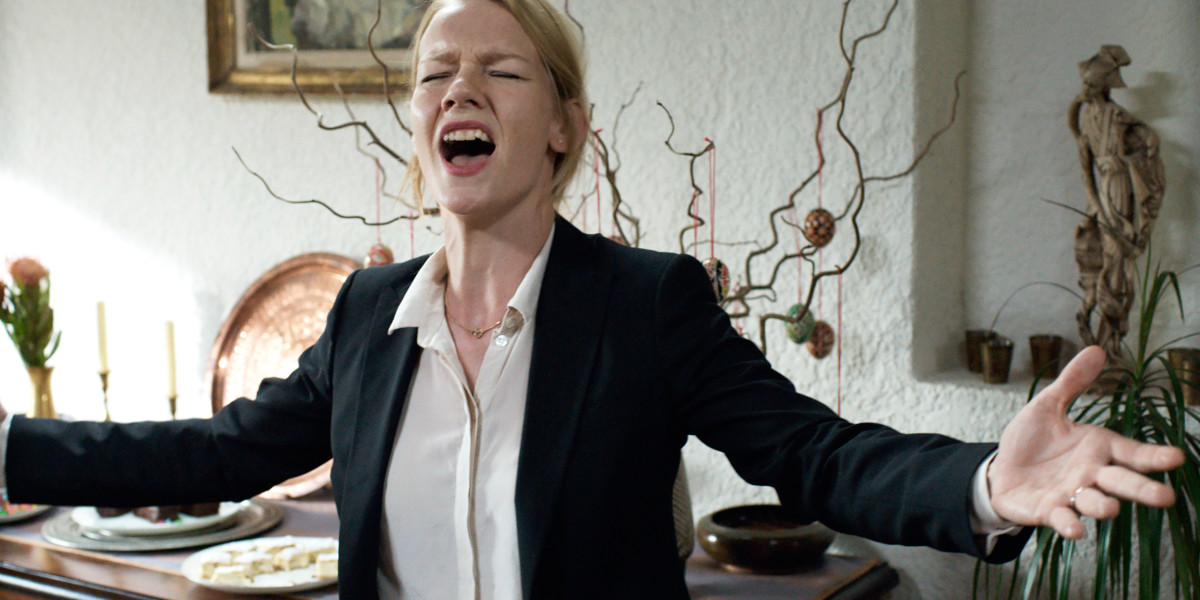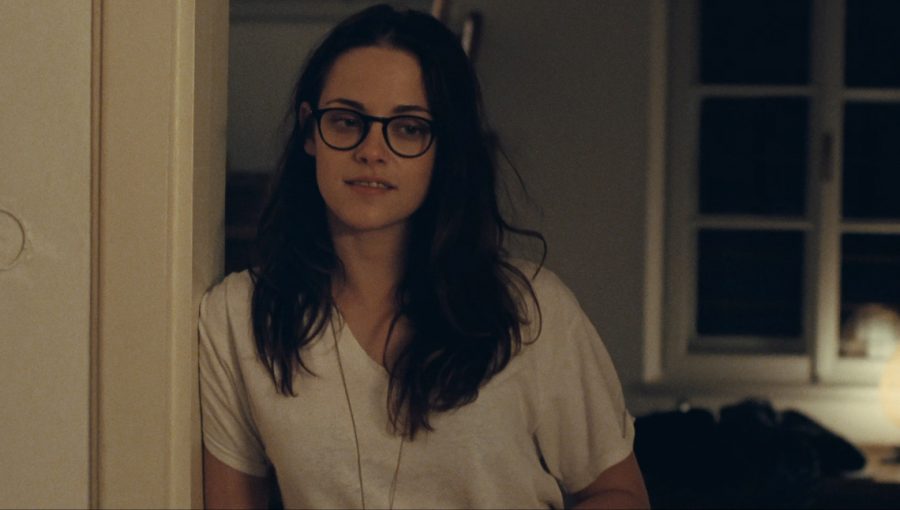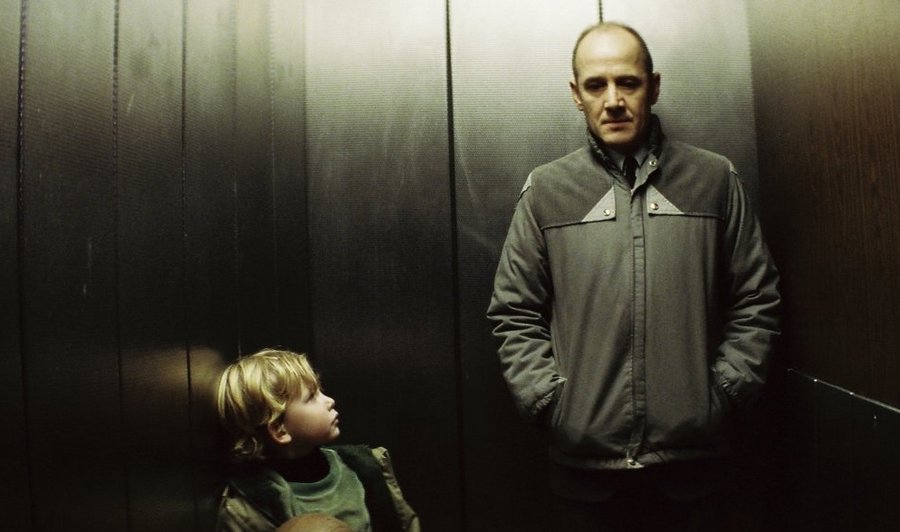Tuvalu (1999)

7.3
An old bath house reaches its end in this bizarre, eccentric experimental fantasy
Movie
Germany
German
Comedy, Drama, Family, Fantasy
1999
VEIT HELMER
Chulpan Khamatova, Denis Lavant, Djoko Rosic
92 min
TLDR
So, so strange.
What it's about
A family of three resides in the old public swimming pool: the blind father who reminisces on a time that’s passed, the mother who charges buttons for admission, and a son named Anton, who has never ventured outside. However, when a beautiful girl named Eva visits the old pool, Anton falls in love and hopes to win her heart while keeping the dilapidated bath house from being knocked down.
The take
Tuvalu is a pretty weird film. It’s definitely inspired by old silent expressionist films– Barely anyone speaks in it, the scenes play out in a variety of sepia tones, and the expressions everyone takes are hyper-exaggerated– but it’s the plot points that can feel cryptic and loopy for some viewers, considering the wacky ways Anton improvises some quick fixes for the pool. It’s because of this that the film won’t be for everyone. However, cinephiles looking for something outside the mainstream fare might enjoy Tuvalu, because the strange plot is depicted through interesting frames shot in the beautiful sets of the dilapidated pool, in a unique style that most viewers would rarely see today. Tuvalu is eccentric, but it’s not bad, and no one can deny its originality.
What stands out
The thing is, after everything, I can’t help but think about the plot. Should it be a triumph that the entire town pitched in to help maintain the illusion of a thriving bath house to the old blind man? Given the quick fixes and the fact no one’s even going there, should the bath house even still stand? Or, should the bathhouse’s end be on their own terms? I can’t say.
Comments
Your name
Your comment
Your comment
UP NEXT
UP NEXT
UP NEXT
Curated by humans, not algorithms.

© 2025 agoodmovietowatch, all rights reserved.








